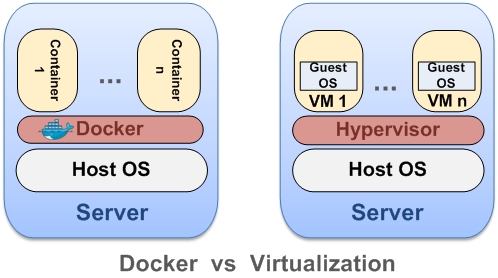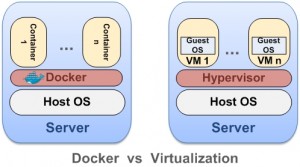Fairly recently, you could have seen number of my Twitter posts, and subsequently some posts on my blog regarding Fujitsu to adopt OpenStack, and the IT industry embracing Docker (or other alternative technologies such as Rocket). If you are interested on alternative technology to Docker, please refer to the following article Docker Not the Only Container Option in 2015 published in Serverwatch.com
The idea of an application container is very simple: you put an app into container that can run on any platform, under any OS under which the “container system” (such as Docker) runs.
This is a natural evolution of software & application space in the era of the “Cloud Computing”. Over the past decade, the IT industry virtualized servers, storage and networks. In my view, the next five to ten years the industry will focus on cloud-enable (virtualize) software and applications.
Virtualizing applications and running them in containers that could be deployed anywhere (no OS, platform, HW boundaries) could have some consequences, for example:
- Cloud applications, as they run in containers, will become truly HW platform independent
- Applications will become OS independent, as long as you can run container system (such as Docker) on that platform
- Existing Operating Systems will become less imporant, container systems (such as Docker) will become “the new Operating System”
- Existing virtualization platforms (such as VMware ESX, Microsoft Hyper-V) will be disrupted as they are build on virtualizing Operating Systems, not container systems
- There will be impact on underlying infrastructure in data centres – app containers will replace full-blown server virtualization.



0 responses to “Cloud applications and its impact on the traditional IT Infrastructure”